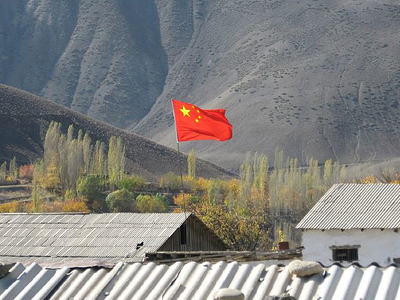A longer article in the latest The National Interest journal, this one alongside Alex as part of our ongoing China in Central Asia project. Whilst the whole article is available on their site, they have asked that I only post the first few paragraphs here for the time being with the rest up later here. The article is the first that captures comprehensively the ‘inadvertent empire’ thesis that is going to be a big focus of this project.

A Chinese road crew works in Tajikistan.
PRESIDENT OBAMA’S late 2011 announcement of his administration’s pivot to Asia marked a sea change in America’s geopolitical posture away from Europe and the Middle East to Asia and the Pacific Rim. Reflecting the growing strategic repercussions of China’s rise, the move presages a new era of great-power politics as the United States and China compete in Pacific waters. But is the United States looking in the right place?
A number of American strategists, Robert D. Kaplan among them, have written that a potential U.S.-Chinese cold war will be less onerous than the struggle with the Soviet Union because it will require only a naval element instead of permanent land forces stationed in allied countries to rein in a continental menace. This may be true with regard to the South China Sea, for example, or the Malacca Strait. But it misses the significance of the vast landmass of Central Asia, where China is consolidating its position into what appears to be an inadvertent empire. As General Liu Yazhou of China’s People’s Liberation Army once put it, Central Asia is “the thickest piece of cake given to the modern Chinese by the heavens.”
For most of its unified history, China has been an economically focused land power. In geopolitical terms today, China’s rise is manifest particularly on land in Eurasia, far from the might of the U.S. Pacific Fleet and Washington’s rimland allies—and far also from the influence of other Asian powers such as India. Thus, Western policy makers should be dusting off the old works of Sir Halford Mackinder, who argued that Central Asia is the most pivotal geographic zone on the planet, rather than those of Alfred Thayer Mahan, the great U.S. strategist of sea power. Greater attention needs to be paid to China’s growing presence in Central Asia if the United States is to understand properly China’s geopolitical and strategic rise.


